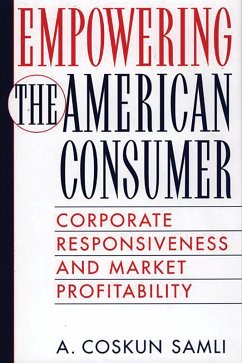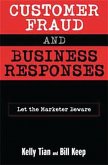Far removed from the markets they're meant to serve, insensitive to market needs, inflexible in how they do business, America's oliuopolistic corporations are terrorizing consumers. The result is that the American market system does not work as it should, and indeed, performs far below its potential. Samli argues that the system should not be treated as though it were sacrosanct. Indeed, it must be made to do more than it is doing to encourage competition and create consumer value-things it neglects, says Samli, because of a mistaken notion that laissez-fairism is working well, and that in today's free economy things are just fine. Not so, and corporations are actually suffering on their bottom lines. By creating true consumer value and by stopping their headlong rush to merge and thereby decrease competition, corporations can achieve their profit goals more easily, and even establish higher ones. The trick is to pay more attention to their customers, to be more responsive to their needs and wishes, and in Samli's words, to turn a kinder and gentler face to the world. His book is a challenging, provocative declaration for policy makers in the public and private sectors, and for academics, an important adjunct to their studies of how business, government, and society interact. First, says Samli, merger mania must stop. Government must exercise its full power to protect, inform, and educate consumers-and take care that business, unchecked, does not prey upon them. He cites evidence that consumers are not equal, that many are frail and vulnerable, and that in many markets they are simply being ignored. Samli maintains that far from being hostile to business, he sees business as actually working against itself. If business thinks of, and works for, the benefit of the consumer, if it eschews strategies that simply cut costs and contribute to self-enlargement, consumers will become empowered. In fact, Samli calls for more regulation, not less, and for more competition. He also calls for consumers who are better educated, and for the nation to cultivate its resources-human and environmental-in ways that will enhance economic performance, not only for society that depends on corporations, but for corporations themselves that depend on society.
Bitte wählen Sie Ihr Anliegen aus.
Rechnungen
Retourenschein anfordern
Bestellstatus
Storno









